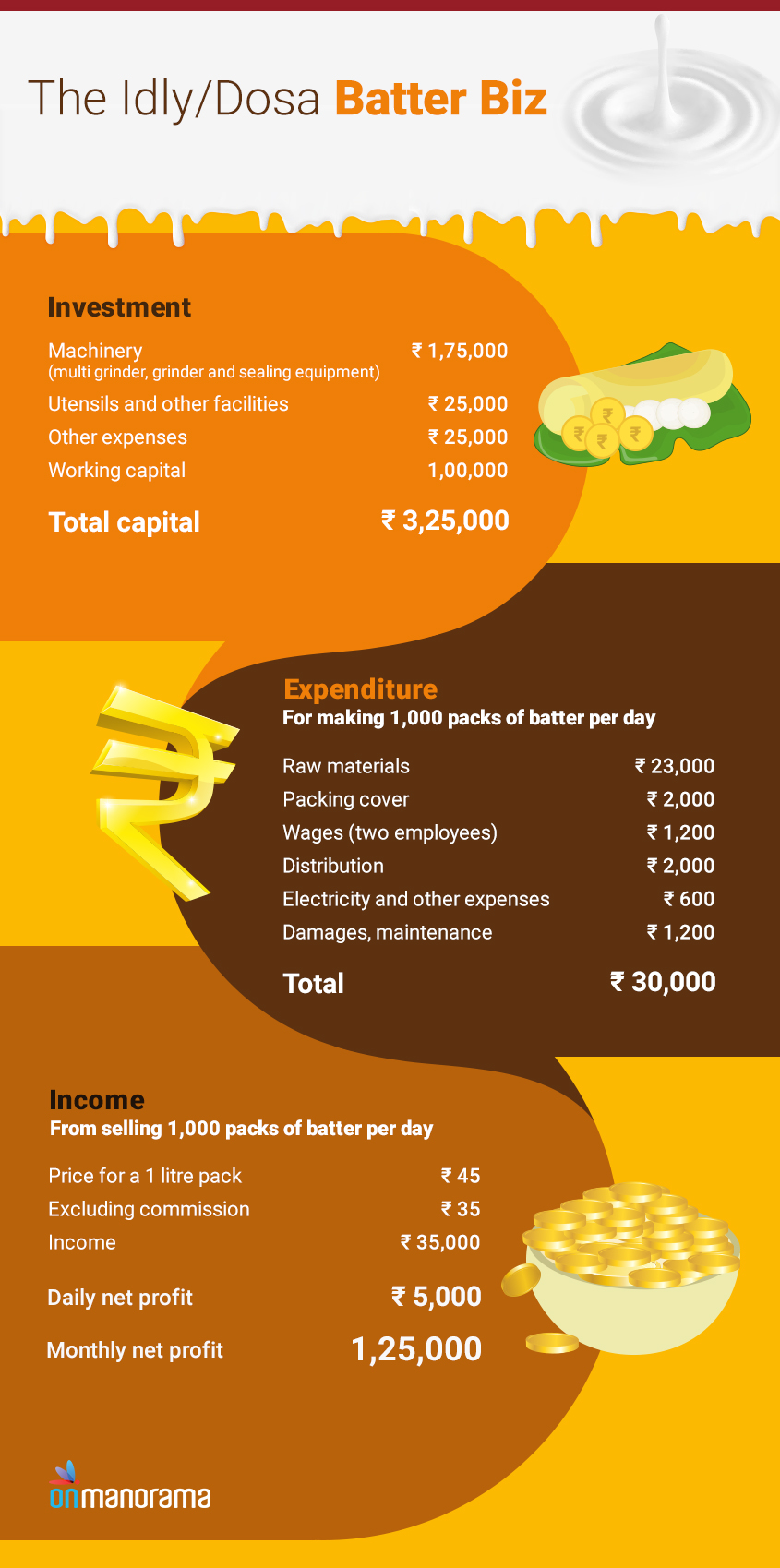Onmanorama brings to you business models that are low on investment and high on returns every day. Our fourth idea in the series is idli and dosa batter business.
Readymade dosa/idli batter is here to stay. Though not a novel idea, the batter business is a profitable model that can be emulated in small scale, especially when people are more tuned into traditional ways of eating.
Nowadays, people are not interested in soaking rice and lentils overnight and grinding them to a smooth batter. They prefer going to the nearest shop and buying readymade batter.
Gone are the days when batter supply was limited to localised units. More efficient grinders and packing machines help entrepreneurs to package and market their products to all corners of the state. An endeavour would be profitable if it could ensure at least 100 supply centres.
The business is low on investment and raw material supply is not a concern. Quality is the key to getting a foothold in the market. Branding is not essential in the business.
The production is simple. Quality Ponni rice and urad dal is soaked in water for four hours before grinding them separately into a smooth batter. The batters are mixed with salt and left to ferment. They are commonly filled into 1 kilogram packs which could be used to make 22-24 idlis or dosas.
They can be marketed in multi-colour packs or with a simple pack without labelling. The packed batter can be stored in room temperature for a day or in the refrigerator for up to four days.
Small-scale entrepreneurs can find their market easily. They can maximise profit if they are able to distribute the batter themselves. They have to ensure that the sales outlets are equipped with refrigerating facilities to keep the batter.
They can arrange the business flow by production, distribution and sales to ensure a steady customer base. Most of the players in the business worry about unsold packs that are to be taken back from the stores. They can avoid the situation by estimating the sales potential of each end point and adjusting production and distribution accordingly.
“We have enough customers but we find it difficult to transport the batter to all of them,” said K Sumathi, who runs Kitchen Mate Food Products in Parappanangadi. She said she ventured into the area with the support of the Kudumbasree.
The key to success, she says, is the absence of any preservatives in the batter.
(This story is the fourth from a series on easily doable business ideas, watch this space for the next one on starting a camphor making unit)
